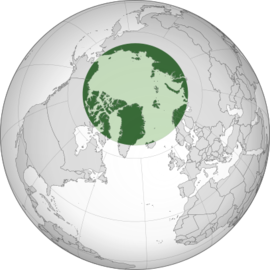en.wikipedia.org
Always private
DuckDuckGo never tracks your searches.
Learn MoreYou can hide this reminder in Search Settings
All regions
Argentina
Australia
Austria
Belgium (fr)
Belgium (nl)
Brazil
Bulgaria
Canada (en)
Canada (fr)
Catalonia
Chile
China
Colombia
Croatia
Czech Republic
Denmark
Estonia
Finland
France
Germany
Greece
Hong Kong
Hungary
Iceland
India (en)
Indonesia (en)
Ireland
Israel (en)
Italy
Japan
Korea
Latvia
Lithuania
Malaysia (en)
Mexico
Netherlands
New Zealand
Norway
Pakistan (en)
Peru
Philippines (en)
Poland
Portugal
Romania
Russia
Saudi Arabia
Singapore
Slovakia
Slovenia
South Africa
Spain (ca)
Spain (es)
Sweden
Switzerland (de)
Switzerland (fr)
Taiwan
Thailand (en)
Turkey
Ukraine
United Kingdom
US (English)
US (Spanish)
Vietnam (en)
Safe search: moderate
Strict
Moderate
Off
Any time
- Was this helpful?
- The Arctic Circle, currently at roughly 66° north of the Equator, defines the boundary of the Arctic seas and lands A political map showing land ownership within the Arctic region Artificially coloured topographical map of the Arctic region MODIS image of the Arctic. The Arctic (/ ˈ ɑːr k t ɪ k / or / ˈ ɑːr t ɪ k /) [1] [Note 1] (from Greek ἄρκτος, 'bear') is a polar region ...
britannica.com
4 days agoArctic, northernmost region of Earth, centered on the North Pole and characterized by distinctively polar conditions of climate, plant and animal life, and other physical features. The term is derived from the Greek word arktos ('bear'), referring to the northern constellation of the Bear.newint.org
New Internationalist
https://newint.org › features › 2009 › 07 › 01 › arctic-history
The Arctic: a history. 2 July 2009. By the New Internationalist team. A mythical place - land of the frozen ocean, the aurora borealis and the midnight sun - the Arctic has long fascinated humankind. It has brought both riches and disaster to those who have tried to dominate it, while its indigenous people have been marginalized and ...britannica.com
4 days agoArctic - Exploration, Inuit, Climate: In northernmost North America, only mainland Alaska and a small northwestern corner of Canada remained largely unglaciated during the latest ice age of the Pleistocene (about 2,600,000 to 11,700 years ago); these areas were joined to northeastern Asia—also largely without ice—across land exposed by low sea levels at what is now the Bering Strait.churchillscience.ca
Churchill Northern Studies Centre
https://churchillscience.ca › the-history-of-arctic-exploration
Nov 29, 2023The Tara Expeditions (2006-2008): A French initiative where the schooner Tara drifted with the Arctic ice for over a year, collecting valuable data on the Arctic ecosystem and the impact of climate change. MOSAiC Expedition (2019-2020): The largest Arctic expedition in history, led by the German research icebreaker Polarstern, embarked in 2019 ...naturalhistory.si.edu
Smithsonian National Museum of Natural History
https://www.naturalhistory.si.edu › education › teaching-resources › anthropology-and-social-studies › arctic-lands-and-peoples
Dec 4, 2024The Arctic Studies Center, National Museum of Natural History. Staff at the Arctic Studies Center (ASC) work with Indigenous peoples of the Arctic on research about northern lands, environments, and cultures and to facilitate access to Smithsonian collections and resources. Learn more about their work:britannica.com
4 days agoArctic - Exploration, Study, Climate: The earliest references to Arctic exploration are shrouded in obscurity as a result both of inaccurate ideas of the shape of Earth and of primitive navigation techniques, which make it difficult to interpret early maps and accounts of voyages. Probably the first to approach the Arctic regions was a Greek, Pytheas, who in the 4th century bce made a voyage ...archive.org
Archaeological evidence of early habitation is considered, including the remarkable Whale Alley on Yttygran Island in Russia's Far East, an Arctic 'Stonehenge'. Later chapters cover the history of whaling, of the Hudson's Bay Company and other fur traders, and of the exploitation of the Arctic's natural resources.press.uchicago.edu
The University of Chicago Press
https://press.uchicago.edu › ucp › books › book › distributed › H › bo14439792.html
In A History of the Arctic, award-winning polar historian John McCannon provides an engaging overview of the region that spans from the Stone Age to the present.McCannon discusses polar exploration and science, nation-building, diplomacy, environmental issues, and climate change, and the role indigenous populations have played in the arctic's story.archive.org
Geopolitics -- Arctic regions, Arctic peoples, Climatic changes -- Arctic regions, Natural resources -- Arctic regions -- Management, Arctic regions -- History, Arctic regions -- Discovery and exploration -- History, Arctic regions -- Environmental conditions, Arctic regions -- Climate Publisher London : Reaktion Books CollectionCan’t find what you’re looking for?
Help us improve DuckDuckGo searches with your feedback
